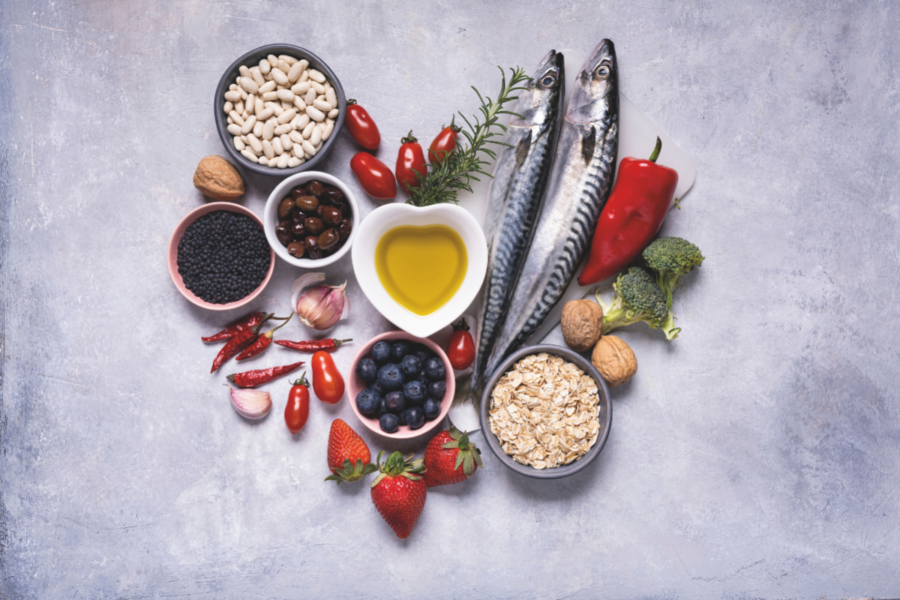For Cholesterol Awareness Month this October, we share the things you might not know about this must-have fatty substance, and why it’s helpful to know the “good” from the “bad.”
Words: Eva Gizowska. Images: Shutterstock. *Source: British Heart Foundation.
Think of cholesterol and chances are you think of heart disease – in fact, almost half of all adults in the UK have raised cholesterol, according to Heart UK. Yet, without this waxy, fatty substance, your body would not be able to function at all.
‘Cholesterol is a crucial component of every cell membrane in the body,’ says Rob Hobson, registered nutritionist and author of Unprocess Your Life (£18.99, Thorsons). ‘It’s needed to make vitamin D and other hormones, including testosterone and oestrogen, and also fat-dissolving bile acids that aid digestion and the absorption of fat-soluble nutrients such as vitamins A, E, and K.’ The body also uses cholesterol to help build new tissue and repair damage.
But while most of us are aware of the potential risks of high cholesterol, what’s often overlooked are the many ways cholesterol can also help to keep us healthy. Here, we look at some of the lesser-known facts about cholesterol and the benefits it can bring…

1. Not all “bad” cholesterol is bad
‘Most people – and most doctors – only know about LDL and HDL cholesterol,’ says Jonny Bowden, nutritionist and co-author of The Great Cholesterol Myth (£14.99, Fair Winds Press). ‘Yet, scientists have identified at least 13 different types of cholesterol.’ Research shows that LDL particles vary in size. Smaller, denser LDL particles (VLDL) have a greater tendency to promote plaque formation within the arteries than larger LDL particles, as they are more prone to oxidation.
This distinction is crucial. It’s not enough to look at traditional LDL measurements alone. ‘To assess cardiovascular risk, you also need to consider other factors such as inflammation, diabetes, insulin resistance, and metabolic syndrome,’ he says.
2. You need cholesterol for good immunity
‘Cholesterol helps to form cell membranes, which act as a defensive barrier against harmful pathogens, for example, bacteria and viruses,’ says Rob. ‘It is also essential to produce bile acids (in the liver), which aid digestion and have antimicrobial properties that can help to protect against gastrointestinal infection.’
Now, a new study from the Karolinska Institutet, Sweden (Nature Cardiovascular Research, 2024), shows that immune cells, called Kupffer cells, in the liver react to high cholesterol levels and eat up excess cholesterol that can otherwise cause damage to arteries. So, keeping the liver healthy is important for balanced cholesterol and good immunity. Try: Jerusalem artichokes in season from November to March, or leafy green vegetables, lemon, or artichoke supplements can support also.
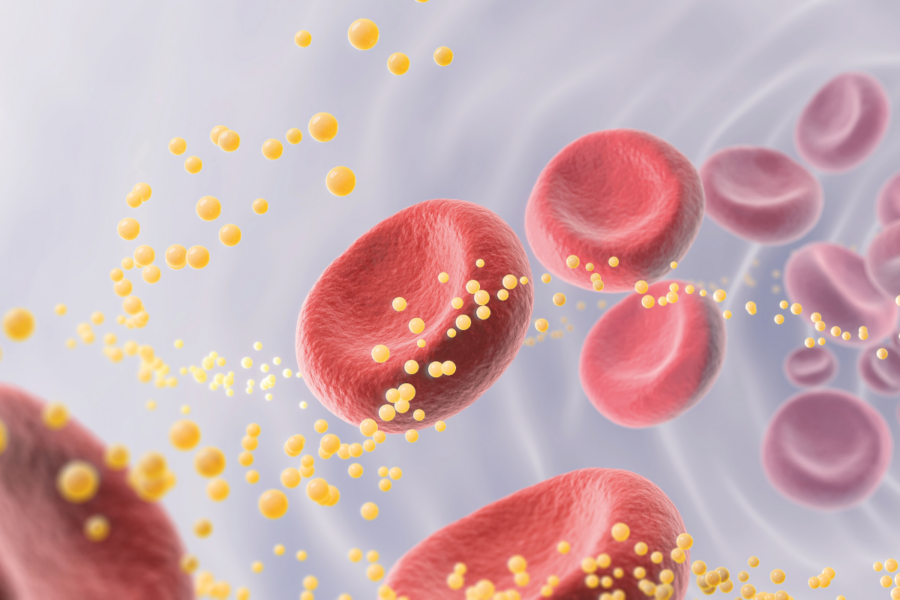
3. Your brain needs cholesterol
The brain makes up only two percent of your total body weight, yet it contains around 25 percent of the body’s cholesterol. There’s a good reason for that. Your brain needs cholesterol to maintain healthy cognitive and neurological function.
‘Cholesterol is vital for the formation of myelin sheaths, which insulate nerve fibres and enhance electrical signal transmission between nerve cells,’ says Rob. Cholesterol is also involved in the communication process for neurotransmitters such as dopamine and serotonin. ‘Unlike other tissues in the body that obtain cholesterol from the bloodstream, the brain produces all the cholesterol it needs.’
4. Slim people can have high cholesterol
‘High cholesterol can affect anyone, regardless of weight, because it is influenced by a combination of dietary habits, physical activity levels, and genetics,’ says Dr Gareth Patterson (instagram.com/theirishgp). ‘Some people are genetically predisposed to high cholesterol, a condition known as familial hypercholesterolemia. This means that despite maintaining a healthy weight and living a healthy lifestyle, they can still have high levels of cholesterol. In the UK, this condition can affect 1 in 137 (British Journal of Common Practice, 2024). Other factors, such as consuming a diet high in saturated fats, smoking, alcohol consumption, and age, can impact cholesterol levels, even if you have a healthy weight.’
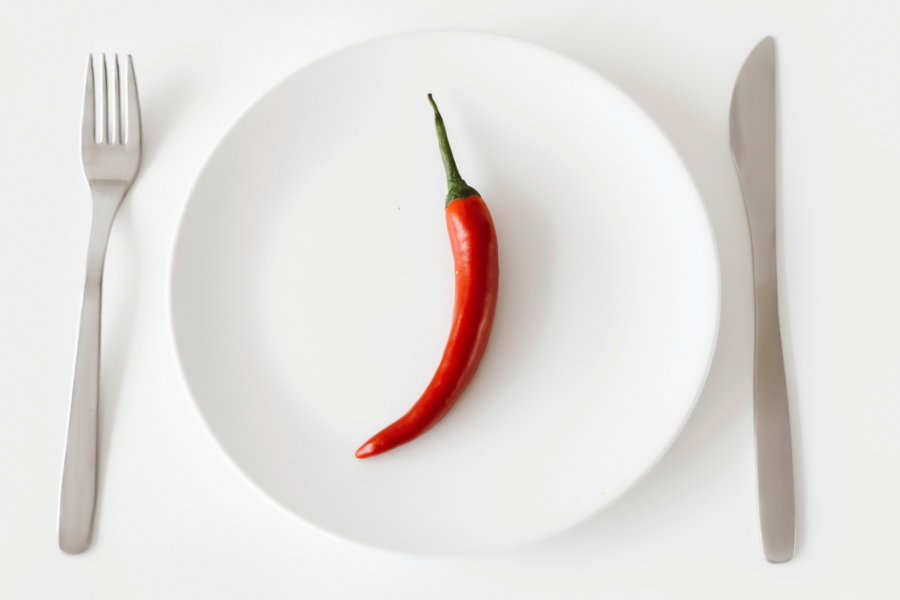
5. Spice up your diet
‘A recent study has found that eating chilli can be good for your heart,’ says Dr Ameet Bakhai, consultant cardiologist at Spire Healthcare. ‘Chilli contains capsaicin, which acts on receptors in the body to improve blood flow. The study found that people who ate hot red chilli peppers had a 12-13 percent lower early death rate.
Garlic has heart health benefits too, as it contains the amino acid allicin, which both reduces cholesterol production in the liver and acts to reduce cholesterol uptake. Plus, it helps maintain healthy blood pressure. Turmeric has also been shown to have powerful anti-inflammatory properties due to an active compound called curcumin. Long-term inflammation is a risk factor for heart disease,’ says Dr Bakhai.
6. Plant sterols can lower cholesterol
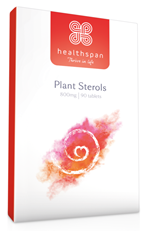
‘Plant sterols offer an effective natural way to lower cholesterol and they are scientifically shown to help lower cholesterol,’ says Rob. ‘Plant sterols are fatty compounds that occur naturally in plants and have a similar structure to cholesterol. In one study (British Journal of Nutrition, 2014), it was shown that plant sterols can lower cholesterol by up to 12 percent, without side effects.’ Obtaining the optimal amount of sterols from food is difficult, so supplementing is a good option here.
The average diet provides only 200-400mg of sterols daily, and vegetarian diets 800mg. To significantly impact cholesterol levels, you need daily doses of 2-3g. Plant sterols can also be used alongside statin drugs, to enhance cholesterol reduction. Try: Healthspan Plant Sterols (£19.49 for 90 tablets, healthspan.co.uk).

7. Cholesterol can impact joint health
‘Research suggests there may be a connection between cholesterol and osteoarthritis (OA),’ says Rob. Osteoarthritis is a degenerative joint disease associated with mechanical wear and tear. It’s most common in women post-menopause (Osteoarthritis and Cartilage, 2023). Cholesterol crystals, particularly those derived from LDL, can induce inflammation, a central feature of osteoarthritis.
‘These crystals can accumulate in the joint space, triggering the body’s immune response and leading to the release of inflammatory cytokines. This inflammation can exacerbate the degradation of cartilage, the cushioning tissue at the ends of bones, leading to the pain, stiffness, and reduced mobility characteristic of OA,’ he adds.
8. Statins may contribute to antioxidant depletion
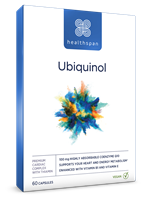
A recent review (Journal of the American Heart Association, 2018) shows that statins can cause depletion of CoQ10. ‘This is a powerful antioxidant, made in the body from ubiquinol,’ says Rob. ‘It is also found in foods like sardines, peanuts, sesame seeds, and broccoli. We need CoQ10 for energy production and muscle health, including the heart.
Recent research, however, shows that taking statins may cause levels to drop by 40-50 percent. This may worsen heart problems and also contribute to muscle-related side effects of statins such as muscle aches and weakness. So, if you’re on statins, you may want to consider taking a supplement,’ he advises. Try: Healthspan Ubiquinol (£45.99 for 60 capsules, healthspan.co.uk).
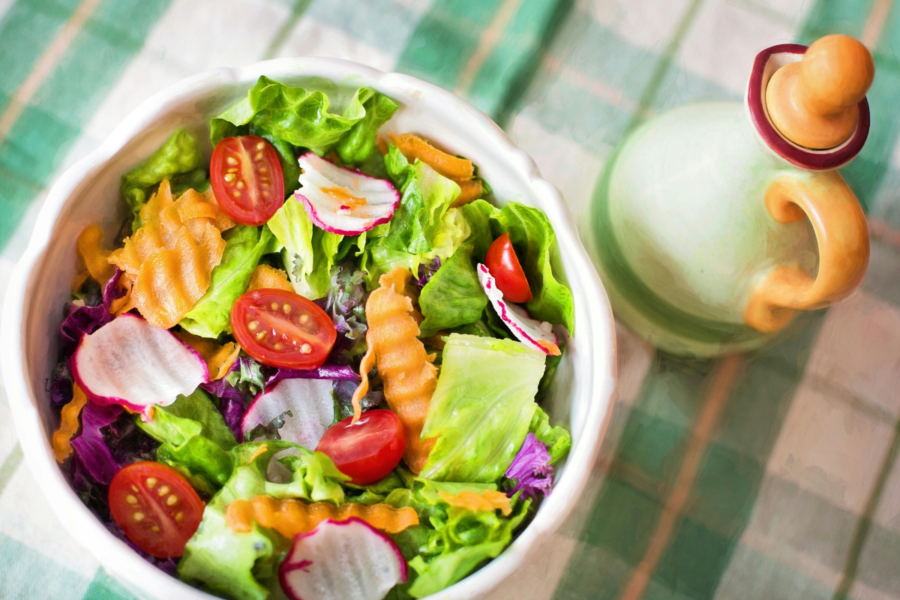
Top 5 cholesterol-lowering foods
Rob Hobson, registered sports nutritionist at Healthspan Elite (healthspanelite.co.uk), recommends the following:
- OATS are high in soluble fibre that binds with cholesterol, preventing it from being absorbed.
- NUTS, especially almonds and walnuts, are rich in monounsaturated fats that help to lower LDL (bad) cholesterol and increase HDL (good) cholesterol.
- DRIED FRUIT is rich in soluble fibres that can bind to cholesterol in the gut and help to remove it from the body – just remember to brush your teeth afterward as dried fruits are notoriously bad for sticking between the gaps of teeth!
- OILY FISH is rich in heart-friendly omega-3 fatty acids. These fats can help increase HDL cholesterol and LDL cholesterol.
- EXTRA VIRGIN OLIVE OIL is rich in monounsaturated fats that help to reduce LDL and increase HDL cholesterol. It’s rich in compounds such as oleocanthal, which has been shown to reduce inflammation. Try The Governor Premium Unfiltered Organic Extra Virgin Olive Oil (£39.95, thegovernorevoo.co.uk), which contains 806mg of heart-healthy polyphenols per kg of oil and is cold-pressed within hours of harvesting, using absolutely no chemicals.
For more information on cholesterol, visit heartuk.org.uk/cholesterol

